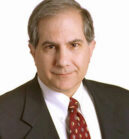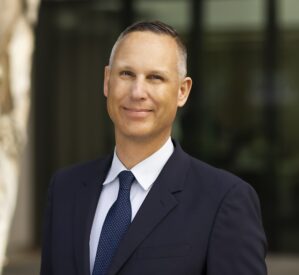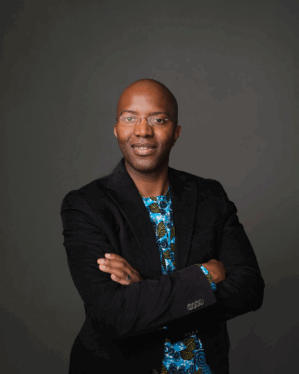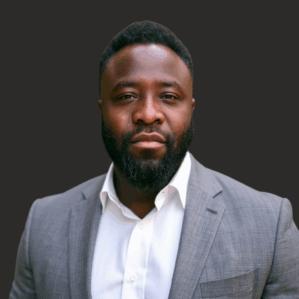When Prof. Stephen Sammut, WG’84, asked his Healthcare Entrepreneurship students whether Chimeric Antigen Receptor T-cell therapy (CAR-T) cancer therapy could be brought to the African continent, he expected a thoughtful discussion. What followed was far more impactful: an interdisciplinary research project that culminated in publication in Cytotherapy, a leading journal in cell and gene therapy.
Sammut had previously led a similar feasibility study on CAR-T therapy in Costa Rica, working closely with Penn Medicine’s Dr. Carl June, MD and Dr. Bruce Levine, PhD, pioneers of immunotherapy. That study explored how to implement this complex treatment—one that involves genetically engineering a patient’s immune cells to target cancer—outside the developed world.
“CAR-T is incredibly promising but also incredibly expensive,” Sammut explains. “Its application in low-resource settings is limited, but the need is great, especially in Africa where cancer is a leading cause of death alongside heart disease.”
A Student Team with Purpose and Expertise
Inspired by Sammut’s question in class about whether CAR-T cancer therapy could be brought to Africa, several EMBA students turned it into an Independent Research Project. Among them were Dr. Lukejohn Day, WG’24, a Chief Medical Officer with a passion for global health equity; Dr. Cynthia Obiozor, WG’24, a hematologist-oncologist and Medical Director at Amgen, leading global oncology trials; Dr. Bukhosi Dube. WG’24, a healthcare consultant and former Chief Medical and Health Integration Officer; and Isaac Edrah, WG’24, CEO of Paramean Solutions, specializing in healthcare actuarial consulting.
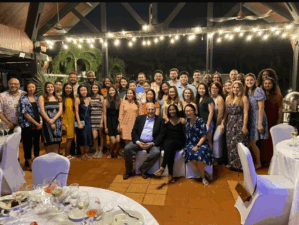
Obiozor had first connected with Sammut during a Global Modular Course on healthcare in Ghana and was immediately intrigued by the possibility of making CAR-T therapy accessible in Africa.
“Given my background, I understood the therapy’s potential and wanted to explore its global scalability,” she says.
Day was drawn to this project because it combined his interests in global health equity, implementation science, and systems thinking.
“I saw an opportunity not just to analyze a complex challenge, but to help shape a real roadmap for change backed by rigorous research and collaborative innovation,” he says.
With Sammut’s guidance and connections to June and Levine, the team quickly gained momentum.
“One of Benjamin Franklin’s guiding principles was to be useful,” says Levine. “The students were not engaging in hypothetical exercise. They wanted to convert research into something practical, to expand access to this therapy beyond Penn and beyond the U.S. to all patients who could potentially benefit.”
Research Findings: Cost, Infrastructure, and Opportunity
The student team conducted extensive interviews with African healthcare providers and analyzed models from global studies. They concluded that while CAR-T therapy is not immediately scalable across all of Africa, targeted implementation is feasible, particularly in countries like South Africa, where infrastructure is more robust.
“We can’t just copy and paste the U.S. model,” Obiozor explains. “So we focused on developing tailored, cost-effective approaches and identifying opportunities to build capacity sustainably.”
Their study outlined financial and logistical barriers, proposed solutions, and emphasized the importance of localized strategies. The final paper, published in Cytotherapy, provided a framework for how this life-saving treatment could be introduced and maintained in select African settings.
Going Beyond the Classroom
For Day, the project embodies the essence of the Wharton MBA.
“It pushed me beyond the classroom to apply what I was learning—finance, strategy, policy, and leadership—in a high-stakes, real-world context,” he says. “I collaborated with classmates from diverse backgrounds, each bringing unique insight to the table. Together, we developed an actionable plan, grounded in both science and business, that could inform policy and investment decisions on the ground in Africa. It was one of the most intellectually and personally rewarding experiences of the program.”
“Wharton gives you the frameworks, mentorship, and peer collaboration to build solutions that matter.” He adds, “This wasn’t theoretical—we were creating a scalable, implementable plan with real partners, in real time. Wharton gave me the platform to do that—and to think bigger than I ever had before.”
Obiozor echoes the sentiment.
“I publish regularly in my professional role, but I never imagined collaborating with Wharton and Penn faculty on something of this magnitude. Our research shows that CAR-T therapy—a treatment for cancers that don’t respond to traditional interventions—can be within reach for countries that never considered it an option.”
“Our paper sets the stage for how truly transformative this can be if it goes into effect. Car-T therapy treats cancers that have failed traditional interventions and gives people hope,” she says. “To go into countries where people aren’t even thinking about this as an option and show that it is feasible is amazing.”
Read the article in Cytotherapy
By Meghan Laska
Posted: July 14, 2025




